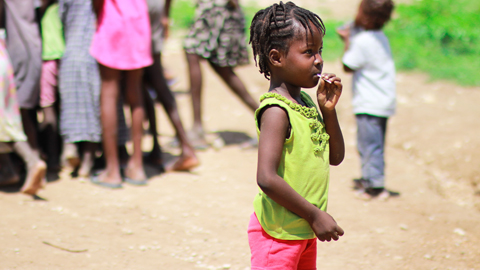More than 3,600 girls are in danger of suffering female genital mutilation in Spain

According to a study presented on November 16th by Adriana Kaplan, director of the Wassu-UAB Foundation, 3,652 girls are at risk of suffering female genital mutilation. The results of the study, promoted by the Government Delegation against Gender Violence, emerge from the application of the prevalence indices of the corresponding country of origin and assessing the impact of the acculturation process in the performance of this practice.
13/11/2020
The past November 16th, the study The Female Genital Mutilation in Spain, made by the Wassu-UAB Foundation, and promoted by the Spanish Government Delegation against Gender Violence was presented online. The event was attended by Victoria Rosell, head of this institution, and Adriana Kaplan, director of the research center.
According to the study, 3,652 girls under the age of 14 are at risk of suffering female genital mutilation in Spain. The numbers are based on the analysis of the prevalence rates of the corresponding country of origin and the assessment of the impact of the acculturation process in the performance of this practice. For this reason, it is of "vital importance its early detection from the health, social and educational field," Rosell contemplated.
By provinces, Barcelona, with a total of 746 minors, it’s estimated to be where there is a greater number of girls at risk of undergoing ablation. In the second position would be Girona with 504 and Madrid, with 335, would occupy the third place.
The Delegate added that this research contributes to making visible a form of violence against women of the least known in our country, but that does not mean that it is necessary to "renounce to carry out specific actions to eradicate it, and thus end with the suffering of many girls who go through this terrible experience, which will mark their lives forever".
Kaplan, referring to the research, commented that female genital mutilation had previously been a local phenomenon in the Sub-Saharan Africa area and that it had now become global due to migratory flows. In this sense, the work that is done in Spain is very relevant in matters of prevention, awareness, and empowerment of migrant families residing in our country, through tools such as the Preventive Commitment document, which help the parents of the girls at risk with an official justification to avoid confrontation with the gerontocratic communities from which they come.
The objective is to ensure that the girls arrive intact from their trips to the countries of origin, without having their genitals mutilated, and which is mainly an initiative of the paternal grandmothers. The study was based on the analysis of the protocols of action of the primary health care professionals of 12 autonomous communities, to effectively detect and prevent possible suspected cases of suffering female ablation; and offer guidelines on how to help in its prevention, taking into account the sociocultural factors of the families, and empower them with knowledge. And also be aware of the need to offer psychological support to mutilated women once they have lived through this traumatic experience, to help them overcome it.
The research is also supported by the results of questionnaires carried out on 82 migrant families residing in Catalonia (the region where the first cases of mutilated girls were detected in 1993), to glimpse the relationship of these family groups with this practice. 73% of these knew that FGM was acrime inside and outside of Spain, and 52% that it was in their country of origin. In these surveys, there were also questions to study other aspects such as the relationship with health care and social services professionals. The research has also incorporated in-depth interviews with personnel linked to the care of these migrant families (health workers, social work, NGOs, lawyers, public policymakers, etc.), to see what difficulties they encountered in preventing and managing cases of mutilated girls and women.
According to Kaplan, "do not wait to act in extremis" when you suspect a possible trip to perform FGM. In the case of pregnant women, you can work with them offering support during the gestation period to inform and raise awareness of the dangers for the child if this practice is carried out, once it is born and is a girl. Of this type of preventive and pedagogical actions, carried out from Spain, this practice has been reduced by 5%, even though the population at risk has increased, compared to the study carried out by the Wassu-UAB Foundation in 2012. Finally, the study director concluded that it is key to "empower primary care professionals who are in contact with these families", and "not duplicate channels or resources", favoring greater coordination between professionals".